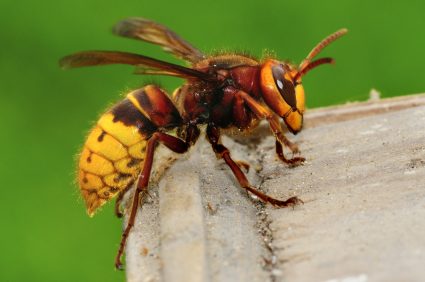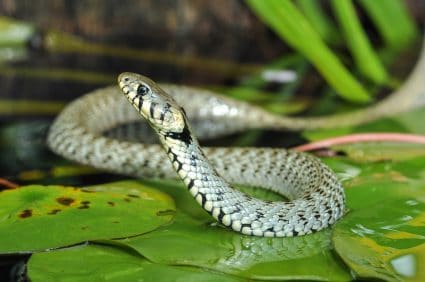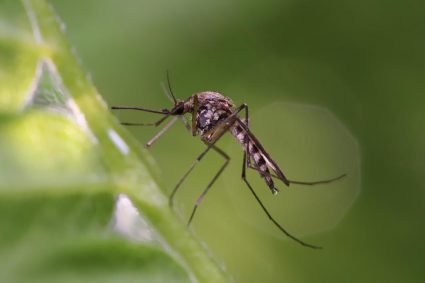
Being sprayed by a skunk can be an incredibly unpleasant experience, not to mention the lingering odor that can be difficult to remove. However, with the right knowledge and quick action, it’s possible to effectively neutralize the smell and prevent any further discomfort. In this comprehensive guide, we’ll explore what to do if you or your pet gets sprayed by a skunk, how to prevent skunk encounters, and more.
If you’re sprayed by a skunk, immediately rinse your eyes with cool water, take a shower, and apply a de-skunking solution made of 1 quart of 3% hydrogen peroxide, ¼ cup baking soda, and 1-2 teaspoons of dish soap. Wash your clothes and belongings that have been sprayed and ventilate your living space. For long-term relief, consider using commercial de-skunking products and implementing preventive measures to avoid future skunk encounters.
Immediate Actions to Take After Being Sprayed
If you’ve been sprayed by a skunk, it’s essential to act quickly to minimize the odor and potential irritation. Here are the immediate actions you should take:
- Rinse your eyes: If the spray got into your eyes, flush them with cool water to alleviate irritation and redness.
- Take a bath or shower immediately: Skunk spray can easily soak into your skin, so wash it off as soon as possible.
- Use a de-skunking solution: Mix 1 quart of 3% hydrogen peroxide, ¼ cup baking soda, and 1-2 teaspoons of dishwashing soap. Apply this solution to the affected areas for 5 minutes, then rinse and repeat as needed. Be cautious not to get the solution in your eyes.
- Wash your clothes and belongings: If your clothes or other items have been sprayed, wash them using the de-skunking solution mentioned above or a commercial skunk odor remover.
- Ventilate your living space: If the odor has entered your home, open windows and run fans to help dissipate the smell. You can also place bowls of vinegar in affected rooms for at least 24 hours to help neutralize the odor.
The Science Behind Skunk Spray
Understanding the chemical composition of skunk spray can provide insights into why it’s so pungent and how to effectively remove it. Skunk spray primarily consists of thiols, also known as mercaptans, which are responsible for the strong, unpleasant odor. Exposure to skunk spray can cause various effects, including irritation and temporary blindness, respiratory problems, and nausea and vomiting.
Home Remedies for Skunk Odor Removal
There are several home remedies that can help neutralize skunk odor:
- Hydrogen Peroxide, Baking Soda, and Dish Soap: This solution chemically changes the odorous thiols in skunk spray into odorless acids, neutralizing the smell.
- Vinegar: Mix equal parts water and vinegar in a spray bottle and use it to wipe down surfaces in your home.
- Baking Soda: Sprinkle baking soda around the affected area to absorb the skunk smell.
- Peppermint: Peppermint can help mask the skunk smell and provide a more pleasant scent in your home.
- Bleach and Water: For hard surfaces, a 1:9 mixture of bleach and water can remove the skunk smell.
Commercial De-skunking Products
Commercial products like Skunk Off Skunk Odor Eliminator Premise Spray, De-Skunk Odor Destroying Shampoo for Dogs, and Nature’s Miracle Skunk Odor Remover are designed to effectively neutralize and remove skunk odor.
Preventing Skunk Encounters
Prevention is the best solution to avoid being sprayed by a skunk. Here are some tips:
- Remove attractants: Secure trash cans, feed pets indoors or remove food immediately after they eat, and eliminate potential food sources like open compost piles or bird feeders.
- Install lights: Skunks are nocturnal and dislike bright light.
- Create barriers: Skunks are poor climbers, so installing a low fence around your garden can help keep them out.
- Be cautious and learn skunk behavior: Give skunks space and avoid sudden movements to prevent startling them.
What to Do If Your Pet Gets Sprayed
If your pet gets sprayed by a skunk, follow these steps:
- Keep your pet outside: to prevent the smell from spreading indoors.
- Check your pet’s eyes: for irritation or redness. If you notice any issues, flush their eyes with cool water.
- Apply a de-skunking solution: to your pet’s coat, avoiding their eyes and mouth. Let it sit for 5-10 minutes before rinsing thoroughly with water.
Remember, being sprayed by a skunk can be an unpleasant experience, but with the right knowledge and quick action, it’s possible to effectively neutralize the smell and prevent any further discomfort. Stay prepared, stay safe!
Frequently Asked Questions
How long does skunk smell last?
Without treatment, skunk odor can last for up to three weeks. However, with proper de-skunking methods, you can effectively neutralize the smell much sooner.
Can skunk spray cause harm to humans or pets?
While skunk spray is not lethal, it can cause temporary discomfort such as eye irritation and temporary blindness, respiratory problems, and nausea. It’s always best to consult a doctor or a vet if you or your pet have been sprayed by a skunk.
Can I use tomato juice to remove skunk odor?
Although tomato juice is often suggested as a remedy for skunk odor, it doesn’t effectively neutralize the smell. It merely masks the odor and can make a mess. The hydrogen peroxide, baking soda, and dish soap mixture is a more effective solution.
How can I tell if a skunk is about to spray?
Skunks usually give warning signs before they spray. They may hiss, stomp their feet, raise their tail, or do a handstand. If you see a skunk exhibiting these behaviors, it’s best to slowly and quietly back away.
Is there a way to get rid of skunks in my yard?
Yes, removing attractants, installing lights, and creating barriers can help deter skunks from your yard. If the problem persists, consider contacting a professional wildlife removal service.










